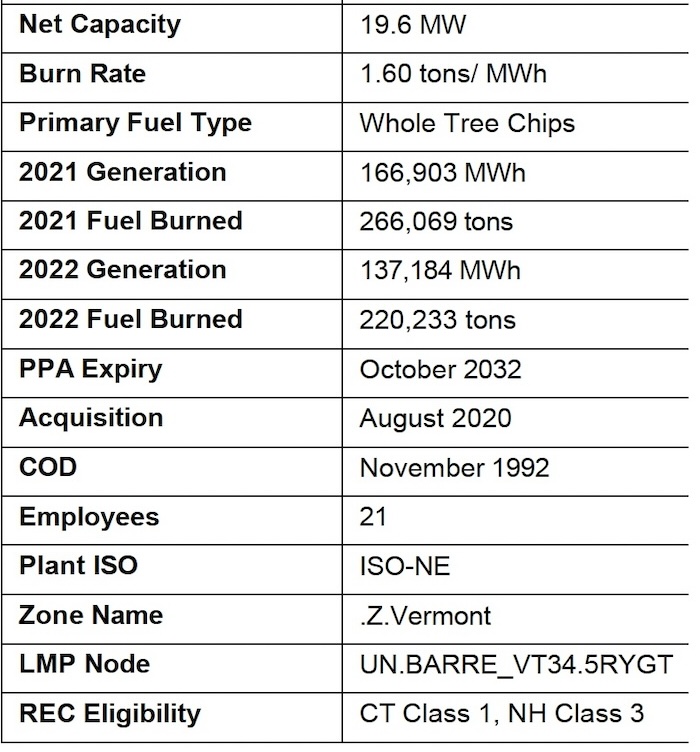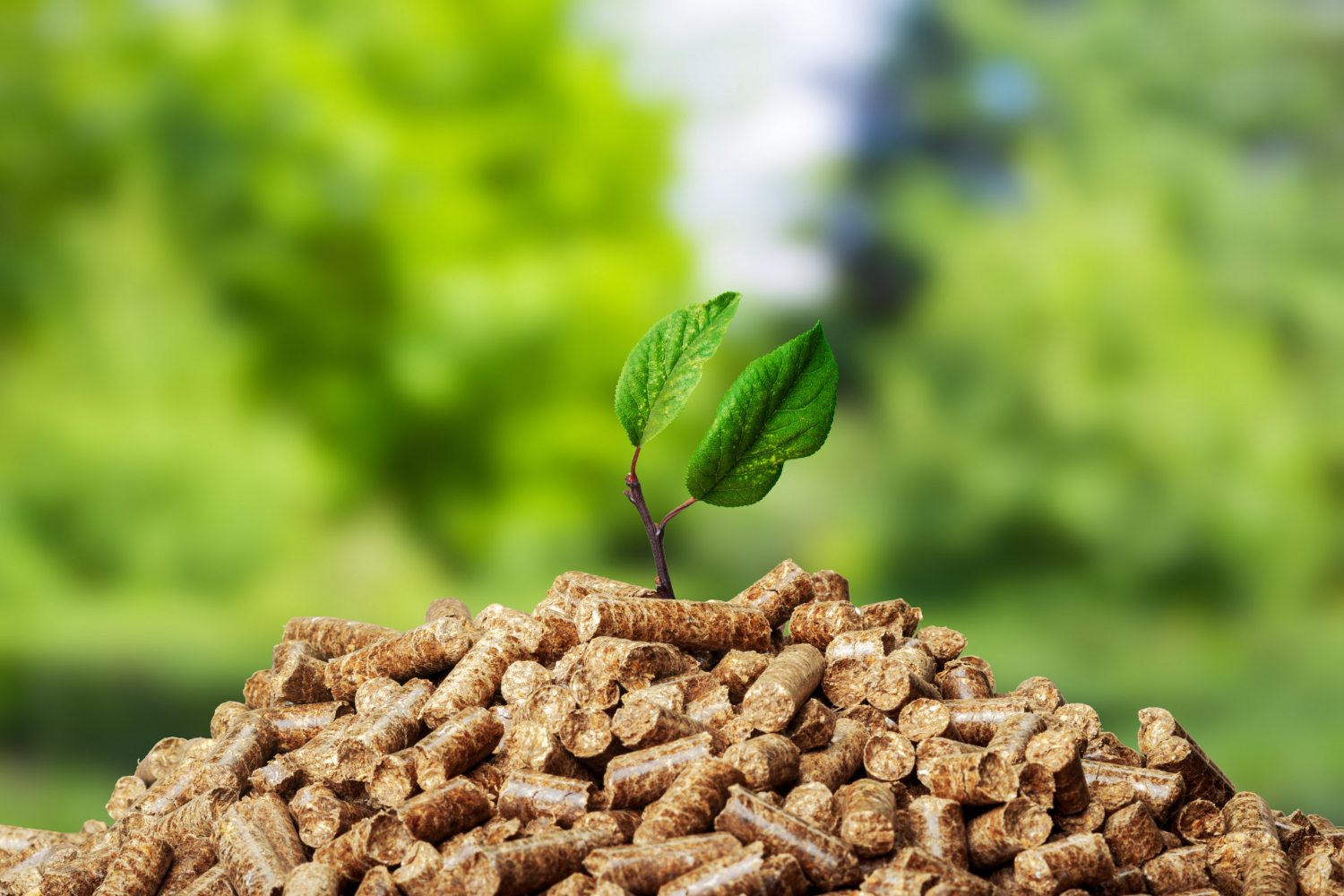- Home
- Renewable Energy
- 19.6 MW Biomass Power Plant
19.6 MW Biomass Power Plant
© 2024 MergersCorp M&A International.
© 2024 MergersCorp M&A International is a global brand operating through a number of professional firms and constituent entities located throughout the world to provide M&A Advisory and other client related professional services. The Member Firms are constituted and regulated in accordance with relevant local regulatory and legal requirements. For more details on the nature of our affiliation, please visit us on our website https://mergerscorp.com/disclaimer. MergersCorp M&A International is not a registered broker-dealer under the U.S. securities laws.
This website does not constitute an offer to sell, a solicitation of an offer to buy, or a recommendation of any security or any other product or service by MergersUS Inc. or any other third party regardless of whether such security, product or service is referenced in this website. Furthermore, nothing in this website is intended to provide tax, legal, or investment advice and nothing in this website should be construed as a recommendation to buy, sell, or hold any investment or security or to engage in any investment strategy or transaction.MergersCorp M&A International franchising program is not offered to individuals or entities located in the United States.
The franchising program is offered by MergersUK Limited a UK Company with registered office at 71-75 Shelton Street, Covent Garden, London, WC2H 9JQ, United Kingdom.
19.6 MW Biomass Power Plant
A biomass power plant is a facility that generates electricity by burning organic materials such as wood, livestock waste, or agricultural leftovers. These materials are known as biomass, and they are considered a renewable energy source because they can be replenished quickly through natural processes. Biomass power plants are an important part of the effort to reduce reliance on fossil fuels and combat climate change.
One of the key benefits of biomass power plants is their ability to convert waste materials into valuable energy. By using materials that would otherwise be discarded, these plants can provide a sustainable source of power while also reducing the amount of waste that ends up in landfills. This helps to lower greenhouse gas emissions and minimize environmental impact.
In addition to being environmentally friendly, biomass power plants also provide economic benefits to local communities. They create jobs in the collection, processing, and transportation of biomass materials, as well as in the operation and maintenance of the power plant itself. This can help stimulate economic growth and provide a boost to rural economies where biomass materials are often sourced.
Biomass power plants also offer a reliable source of electricity that can help stabilize the grid and enhance energy security. Because biomass is a readily available resource, power plants can operate consistently and provide a constant source of power, even when other renewable energy sources like solar or wind are not producing electricity.
Overview
Biomass power plants in Canada are playing an increasingly important role in the country’s renewable energy sector. These plants use organic materials such as wood chips, agricultural residues, and waste from forestry and agricultural industries to generate electricity and heat. Biomass is considered a renewable energy source because the organic materials used to produce it can be replenished and are considered carbon neutral, as the carbon emissions released during combustion are offset by the carbon dioxide absorbed by the plants during their growth.
One of the main advantages of biomass power plants is that they can help reduce greenhouse gas emissions and promote a more sustainable energy future. By using organic waste materials that would otherwise go to landfills or be burned in the open air, biomass power plants are able to produce clean energy and reduce the environmental impact of these waste materials. In addition, biomass power plants contribute to local economies by creating jobs and supporting the forestry and agricultural industries.
Background
Provide an important environmentally responsible forest management solution as well as substantial value chain benefits to local timber industry. Strong fuel supply: strong long-term historical relationships with suppliers for over 30 years and substantial on-site fuel storage Strong operations: history of safe, strong, reliable operation with highly experienced team Biofuel/biochar and solar farm potential: facility has the fuel relationships and gathering systems for development of biofuels/biochar capability as well as a solar farm.
Revenues
Contracted Electricity Sale: Power Purchase Agreement extended until October 2032 based on ACT155. Adjusted EBITDA in 2022 and on a run-rate basis in 2023 is running at a level of $3.5- $4M. These figures add back management fees to the Operator of approximately $0.6M annually.
The dryer/pellets production project is in permitting process.
The dryer/pellets project’s Capex is $23M and will provide additional revenue and incremental EBITDA (Plant efficiency and additional revenues from pellet production project).
Plant Overview

About
Resources
Contacts
M&A Deal Advisory
Corporate services
Consulting
© 2024 MergersCorp M&A International is a global brand operating through a number of professional firms and constituent entities located throughout the world to provide M&A Advisory and other client related professional services. The Member Firms are constituted and regulated in accordance with relevant local regulatory and legal requirements. For more details on the nature of our affiliation, please visit us on our website https://mergerscorp.com/disclaimer. MergersCorp M&A International is not a registered broker-dealer under the U.S. securities laws.
This website does not constitute an offer to sell, a solicitation of an offer to buy, or a recommendation of any security or any other product or service by MergersUS Inc. or any other third party regardless of whether such security, product or service is referenced in this website. Furthermore, nothing in this website is intended to provide tax, legal, or investment advice and nothing in this website should be construed as a recommendation to buy, sell, or hold any investment or security or to engage in any investment strategy or transaction.MergersCorp M&A International franchising program is not offered to individuals or entities located in the United States.
The franchising program is offered by MergersUK Limited a UK Company with registered office at 71-75 Shelton Street, Covent Garden, London, WC2H 9JQ, United Kingdom.
This website is operated by MergersUS Inc a US Corporation with registered office at
40th Wall Street, Suite #2725, New York, New York 10005, United States of America
Error: Contact form not found.
Error: Contact form not found.
Error: Contact form not found.
Error: Contact form not found.
















Description
A biomass power plant is a facility that generates electricity by burning organic materials such as wood, livestock waste, or agricultural leftovers. These materials are known as biomass, and they are considered a renewable energy source because they can be replenished quickly through natural processes. Biomass power plants are an important part of the effort to reduce reliance on fossil fuels and combat climate change.
One of the key benefits of biomass power plants is their ability to convert waste materials into valuable energy. By using materials that would otherwise be discarded, these plants can provide a sustainable source of power while also reducing the amount of waste that ends up in landfills. This helps to lower greenhouse gas emissions and minimize environmental impact.
In addition to being environmentally friendly, biomass power plants also provide economic benefits to local communities. They create jobs in the collection, processing, and transportation of biomass materials, as well as in the operation and maintenance of the power plant itself. This can help stimulate economic growth and provide a boost to rural economies where biomass materials are often sourced.
Biomass power plants also offer a reliable source of electricity that can help stabilize the grid and enhance energy security. Because biomass is a readily available resource, power plants can operate consistently and provide a constant source of power, even when other renewable energy sources like solar or wind are not producing electricity.
Overview
Biomass power plants in Canada are playing an increasingly important role in the country’s renewable energy sector. These plants use organic materials such as wood chips, agricultural residues, and waste from forestry and agricultural industries to generate electricity and heat. Biomass is considered a renewable energy source because the organic materials used to produce it can be replenished and are considered carbon neutral, as the carbon emissions released during combustion are offset by the carbon dioxide absorbed by the plants during their growth.
One of the main advantages of biomass power plants is that they can help reduce greenhouse gas emissions and promote a more sustainable energy future. By using organic waste materials that would otherwise go to landfills or be burned in the open air, biomass power plants are able to produce clean energy and reduce the environmental impact of these waste materials. In addition, biomass power plants contribute to local economies by creating jobs and supporting the forestry and agricultural industries.
Background
Provide an important environmentally responsible forest management solution as well as substantial value chain benefits to local timber industry. Strong fuel supply: strong long-term historical relationships with suppliers for over 30 years and substantial on-site fuel storage Strong operations: history of safe, strong, reliable operation with highly experienced team Biofuel/biochar and solar farm potential: facility has the fuel relationships and gathering systems for development of biofuels/biochar capability as well as a solar farm.
Revenues
Contracted Electricity Sale: Power Purchase Agreement extended until October 2032 based on ACT155. Adjusted EBITDA in 2022 and on a run-rate basis in 2023 is running at a level of $3.5- $4M. These figures add back management fees to the Operator of approximately $0.6M annually.
The dryer/pellets production project is in permitting process.
The dryer/pellets project’s Capex is $23M and will provide additional revenue and incremental EBITDA (Plant efficiency and additional revenues from pellet production project).
Plant Overview
Basic Details
Target Price:
$25,000,000
Gross Revenue
$18,354,000
EBITDA
$2,265,346
Business ID:
L#20240642
Country
United States
Detail
Similar Businesses
Published on April 19, 2024 at 7:57 pm. Updated on April 29, 2024 at 9:18 pm
83MW Solar Photovoltaic Power Plants
$10,855,000
Renewable Energy
USA Solar Portfolio PV Power Plants [13,7GWp]
$60,000,000
Renewable Energy
24.00 MW Small Hydroelectric with 3x Francis Turbine
TBA
Renewable Energy
5,4MW Hydro Power Plant HPP
$8,990,000
Renewable Energy
7MW PV Photovoltaic Power Plant [Ready to Build]
€7,250,000
Renewable Energy
8.24 MW Solar Power Plant with a signed PPA with the Government
$9,500,000
Manufacturing, Renewable Energy
PREVIOUS PROPERTY
Established Puerto Rico Bank
NEXT PROPERTY
Swiss Para-Banking Financial Services Business with payment services (SRO Licence)